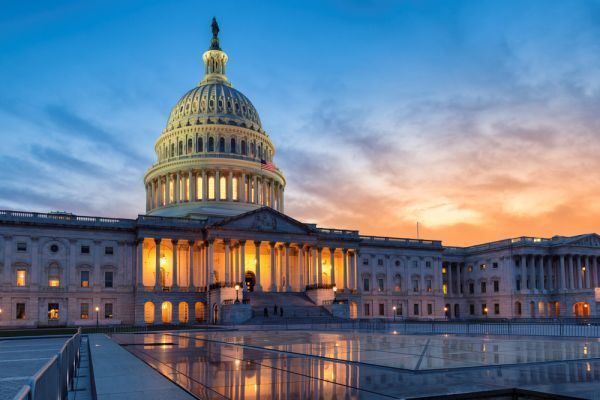ICGA Announces Legislative Priorities for the Upcoming Year

Farmers remain optimistic that we will accomplish our top priorities in 2021. We look forward to seeing a new lock and dam start on the Illinois or Mississippi River, a low carbon, high octane fuel standard like the Next Generation Fuels Act approved by Congress, and promoting awareness to our elected officials that conservation practices are being implemented by farmers in Illinois.
All three of these priorities offer significant progress towards addressing climate change.
New Lock and Dam Start on the Illinois or Mississippi River
Barges have the smallest carbon footprint among freight transportation modes. Moving an identical amount of cargo by rail generates 30% more carbon emissions, while trucks generate 1,000% more emissions. Upgrading our locks and dams to allow for even more efficient barge transportation will result in more industries choosing to ship their products by barge and will lessen the greenhouse gases produced.
Transporting goods via our river system is a tremendous advantage that empowers Illinois to export almost half of our corn crop out of the state and compete globally. Improving our lock and dam system will help our entire state’s economy benefit even more.
Low Carbon, High Octane Fuel Standard Enacted
Corn farmers have always been invested in helping Americans fill up with a clean burning, earth friendly fuel. Now the opportunity to increase ethanol usage remains even more important. We have the technology to reduce greenhouse gases immediately by using ethanol in vehicles and are hoping to see legislation passed that encourages the transition to even higher blends of fuel. This legislative priority will be realized when the Next Generation Fuels Act or a similar bill is enacted by Congress.
Promoting Awareness to Elected Officials that Farmers are Implementing Conservation on their Farms in Illinois
Finally, we know that our fertile soils can store 2-3 times as much carbon as the air in our atmosphere and can sink this carbon for generations to come. Also, NASA data shows that the Midwest’s growing crops have more photosynthetic activity than anywhere else on earth.
Being able to store carbon in our soils makes conservation practices like no-till very important. When farmers do not till the earth, they do not release the carbon stored into the soil back into the atmosphere. Coupled with the photosynthetic activity during the growing season, farmers have a unique opportunity to offset carbon increases that other industries do not.
We understand planting cover crops and other conservation practices are a financial investment which may deter those who want to try them out. A separate Illinois initiative, with key support from ICGA, created a five-dollar discount on crop insurance for every acre of cover crop planted and saw huge demand well beyond the program’s allocated acreage amount.
Between improvements on the lock and dam systems, expanding ethanol usage and demonstrating conservation practices, ICGA and the corn farmers we represent are interested in being a part of the climate solution for our country.







